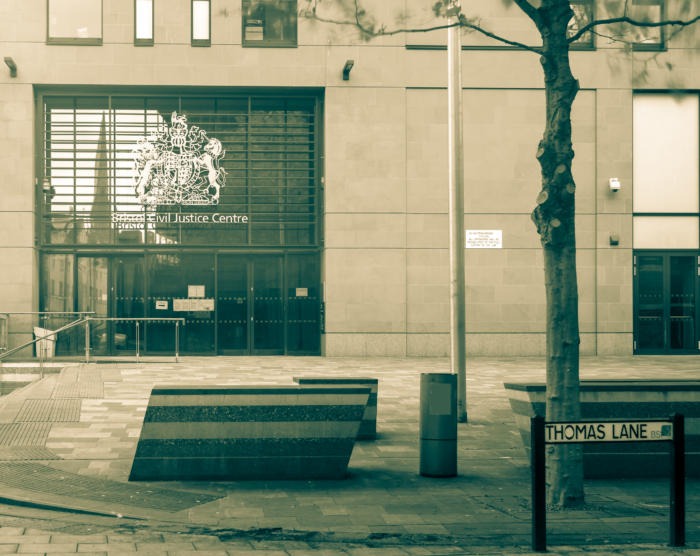
Bristol Civil Justice Centre – photo depositphotos / jaceksphotos
In the new IPEC guide issued last week, it was rather quietly announced that from October 2019 District Judges will be available in Birmingham, Bristol, Cardiff, Leeds, Manchester and Newcastle to hear intellectual property small claims. This will be welcome news for businesses and individuals in the regions who will now have easier access to the court system to resolve certain small-scale IP disputes.
Since it was set up in 2012, it is difficult to present the history of the IPEC small claims track as anything but a resounding success. The value of an individual small claim is low (at least, relatively low) but the importance of being able to effectively enforce IP rights at low cost is invaluable in certain industries. Professional photographers in particular have been able to use the system to obtain good compensation for infringements that have occurred, and no doubt deter a great many infringements that as a result have not occurred.
At the same time, small business and individual defendants faced with certain spurious or unjustified allegations that they have infringed intellectual property rights have been able to have their side of the story heard, without the fear that the legal costs involved give them no option but to “settle and pay up”.
An IPEC small claim will typically be dealt with by directions being given on a judge’s review of the paper file, and a final hearing being allocated with a time estimate of one day. In the vast majority of cases it will be necessary for the Claimant to attend the final hearing themselves as a witness, whether or not they choose to be represented by a lawyer. The availability of the “Business and Property Court centres out of London” – the new and rather more descriptive name for what you may still see called the “Chancery District Registries” – is therefore a significant improvement in the accessibility of the Court to litigants far from London.
For “multi-track” cases, those which are too high-value or too complex for the small claims procedure, the IPEC guide has stated for many years that the judges are able and willing to sit outside of London. Perhaps litigants and their lawyers were afraid to ask, because the first such trial outside London took place in Birmingham in October 2018. HHJ Melissa Clarke, the judge in the case, commented “I do not know why it has taken so long”.
From time-to-time we have seen intellectual property cases issued in the County Court via the “money claim online” procedure. The rules make it quite clear that this is not allowed (63.13, Civil Procedure Rules if you want to look it up). Where a claim is wrongly issued by this route, it almost always serves to increase the time and cost of resolving the dispute. Given the availability of IPEC small claims outside London, there is no excuse now. An intellectual property claim must be issued in the correct court.
We look forward to the continued success of the Intellectual Property Enterprise Court and expect that this latest development will further assist those who rely on intellectual property, and a reliable and accessible court system to enforce it, for the success of their own businesses and livelihoods.




